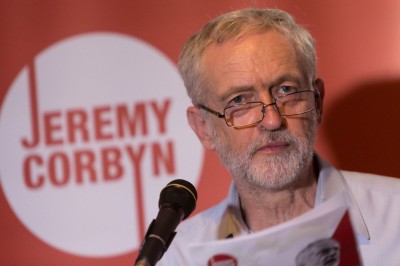A Future Labour Government Would Provide Generic Drugs for the NHS Through New State-owned Company. Jeremy Corbyn

Jeremy Corbyn announced yesterday at the 2019 Labour Party conference that a future Labour government would set up a British national drug company to manufacture generic and other drugs at a much lower cost than at present thereby avoiding the burden of import tariffs and the substantial contribution to the profits of overseas manufacturers.
Furthermore, a Labour government would seek to override the patents of drug companies deemed to be overcharging patients. One specific drug, for example, for cystic-fibrosis, is officially listed at a price of more than £100,000 per year per patient.
The other strand of the Labour policy would ensure taxpayers benefited from new pharmaceutical drugs developed by larger companies in collaboration with public research bodies. Currently, Britain’s National Health Service spends billions of pounds every year on generic drugs and pharmaceuticals manufactured by foreign companies such as TEVA Pharmaceutical Industries, a multinational pharmaceutical company headquartered in Israel. (**)
Tens of thousands of patients suffering from illnesses such as breast and other cancers, cystic fibrosis and hepatitis C “are being denied life-saving medicines by a system that puts profits for shareholders before people’s lives”, Jeremy Corbyn said. Last night, patient groups welcomed the announcement.
According to the BBC, ‘Latest figures show annual research-and-development spending by pharmaceutical companies is £4.3bn, while public-funded bodies spend £2.4bn and medical research charities £1.3bn.’
Labour quotes the example of Humira (used to treat arthritis and some other conditions), which is said to be the best selling prescription drug in the world but which was based on government-funded research in a Cambridge laboratory. The Party says if private corporations take forward these drug discoveries, they should make them available to the NHS at lower prices and ensure there is a financial return for the public sector investment’.
Note
** Legal issues: TEVA Pharmaceutical. (Wikipedia)
In December 2016, the attorneys general of 20 states filed a civil complaint accusing Teva Pharmaceutical of a coordinated scheme to artificially maintain high prices for a generic antibiotic and diabetes drug. The complaint alleged price collusion schemes between six pharmaceutical firms including informal gatherings, telephone calls, and text messages.
In May 2019 Teva Pharmaceuticals USA was one of 19 drug companies sued for price fixing in the United States by 44 states for inflating its prices, sometimes up to 1000%, in an illegal agreement among it and its competitors.
In May 2019, Teva Pharmaceuticals agreed to pay $85 million to the U.S. state of Oklahoma to settle an opioid over prescription lawsuit.
In July 2019, Teva had to pay $69 million to settle pay-for-delay claims.

